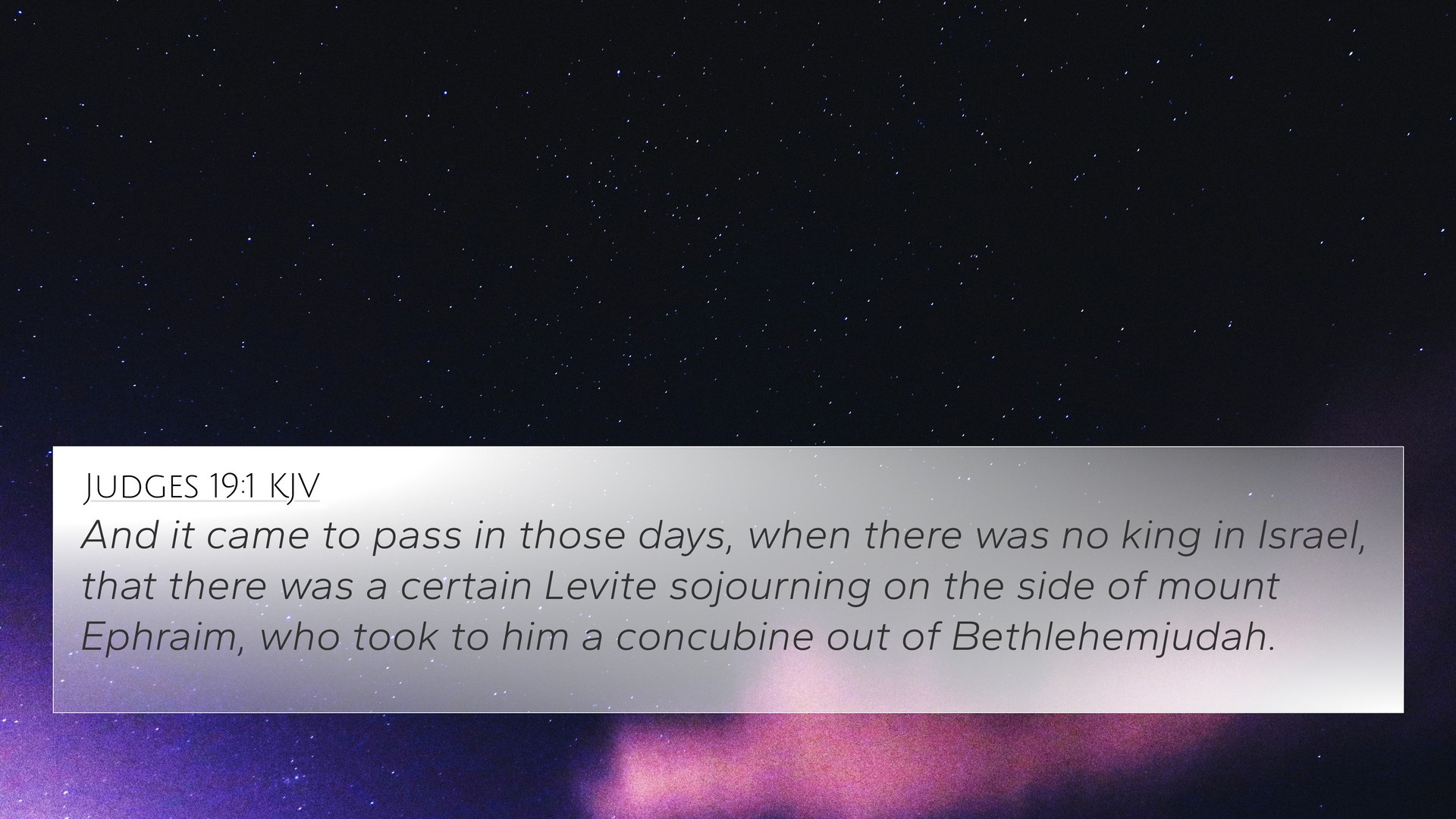This section features a detailed cross-reference designed to enrich your understanding of the Scriptures.
Below, you will find carefully selected verses that echo the themes and teachings related to Judges 19:1 KJV. Click on any image to explore detailed analyses of related Bible verses and uncover deeper theological insights.
 Judges 18:1 (KJV) »
Judges 18:1 (KJV) »
In those days there was no king in Israel: and in those days the tribe of the Danites sought them an inheritance to dwell in; for unto that day all their inheritance had not fallen unto them among the tribes of Israel.
 Judges 17:8 (KJV) »
Judges 17:8 (KJV) »
And the man departed out of the city from Bethlehemjudah to sojourn where he could find a place: and he came to mount Ephraim to the house of Micah, as he journeyed.
 Judges 17:6 (KJV) »
Judges 17:6 (KJV) »
In those days there was no king in Israel, but every man did that which was right in his own eyes.
 Judges 21:25 (KJV) »
Judges 21:25 (KJV) »
In those days there was no king in Israel: every man did that which was right in his own eyes.
 Matthew 2:6 (KJV) »
Matthew 2:6 (KJV) »
And thou Bethlehem, in the land of Juda, art not the least among the princes of Juda: for out of thee shall come a Governor, that shall rule my people Israel.
 Joshua 24:30 (KJV) »
Joshua 24:30 (KJV) »
And they buried him in the border of his inheritance in Timnathserah, which is in mount Ephraim, on the north side of the hill of Gaash.
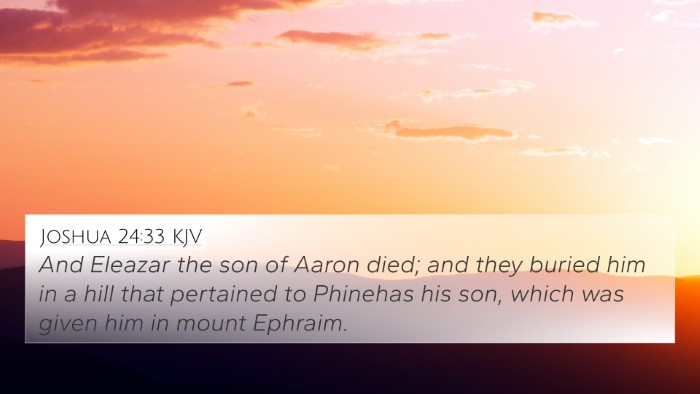 Joshua 24:33 (KJV) »
Joshua 24:33 (KJV) »
And Eleazar the son of Aaron died; and they buried him in a hill that pertained to Phinehas his son, which was given him in mount Ephraim.
 Malachi 2:15 (KJV) »
Malachi 2:15 (KJV) »
And did not he make one? Yet had he the residue of the spirit. And wherefore one? That he might seek a godly seed. Therefore take heed to your spirit, and let none deal treacherously against the wife of his youth.
 Daniel 5:3 (KJV) »
Daniel 5:3 (KJV) »
Then they brought the golden vessels that were taken out of the temple of the house of God which was at Jerusalem; and the king, and his princes, his wives, and his concubines, drank in them.
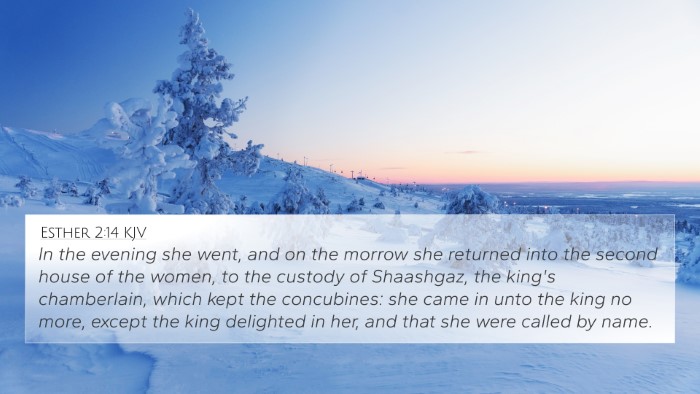 Esther 2:14 (KJV) »
Esther 2:14 (KJV) »
In the evening she went, and on the morrow she returned into the second house of the women, to the custody of Shaashgaz, the king's chamberlain, which kept the concubines: she came in unto the king no more, except the king delighted in her, and that she were called by name.
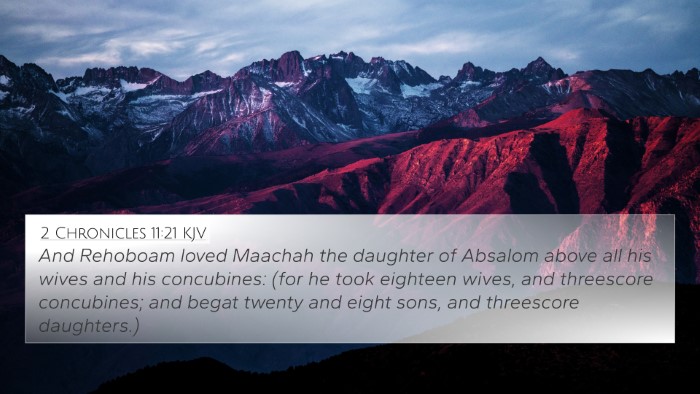 2 Chronicles 11:21 (KJV) »
2 Chronicles 11:21 (KJV) »
And Rehoboam loved Maachah the daughter of Absalom above all his wives and his concubines: (for he took eighteen wives, and threescore concubines; and begat twenty and eight sons, and threescore daughters.)
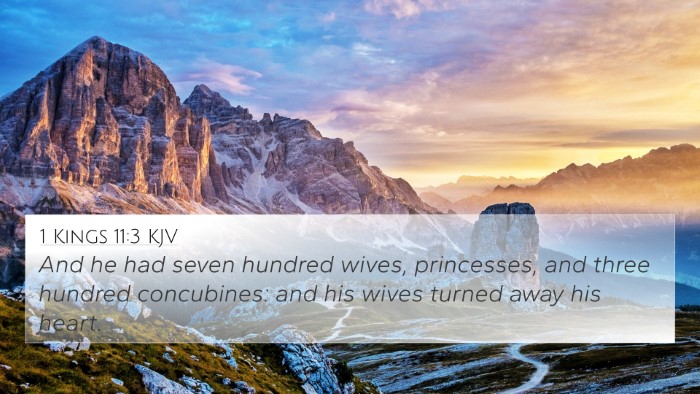 1 Kings 11:3 (KJV) »
1 Kings 11:3 (KJV) »
And he had seven hundred wives, princesses, and three hundred concubines: and his wives turned away his heart.
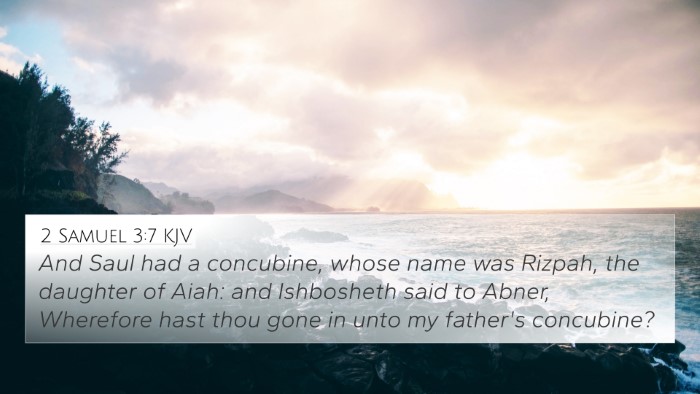 2 Samuel 3:7 (KJV) »
2 Samuel 3:7 (KJV) »
And Saul had a concubine, whose name was Rizpah, the daughter of Aiah: and Ishbosheth said to Abner, Wherefore hast thou gone in unto my father's concubine?
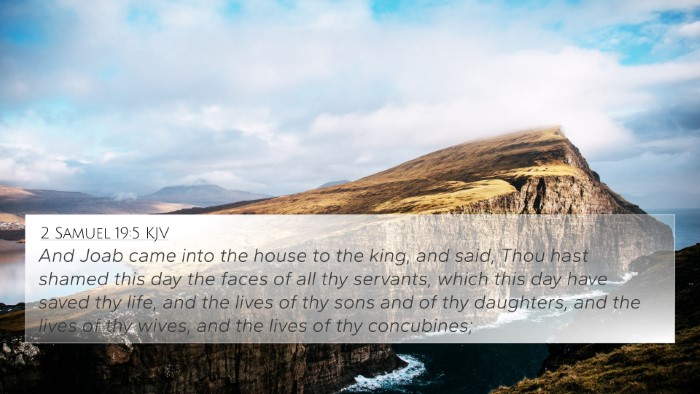 2 Samuel 19:5 (KJV) »
2 Samuel 19:5 (KJV) »
And Joab came into the house to the king, and said, Thou hast shamed this day the faces of all thy servants, which this day have saved thy life, and the lives of thy sons and of thy daughters, and the lives of thy wives, and the lives of thy concubines;
 2 Samuel 5:13 (KJV) »
2 Samuel 5:13 (KJV) »
And David took him more concubines and wives out of Jerusalem, after he was come from Hebron: and there were yet sons and daughters born to David.
 2 Samuel 20:3 (KJV) »
2 Samuel 20:3 (KJV) »
And David came to his house at Jerusalem; and the king took the ten women his concubines, whom he had left to keep the house, and put them in ward, and fed them, but went not in unto them. So they were shut up unto the day of their death, living in widowhood.
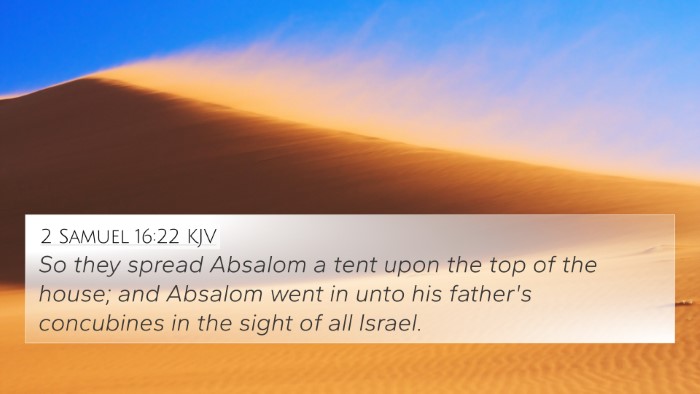 2 Samuel 16:22 (KJV) »
2 Samuel 16:22 (KJV) »
So they spread Absalom a tent upon the top of the house; and Absalom went in unto his father's concubines in the sight of all Israel.
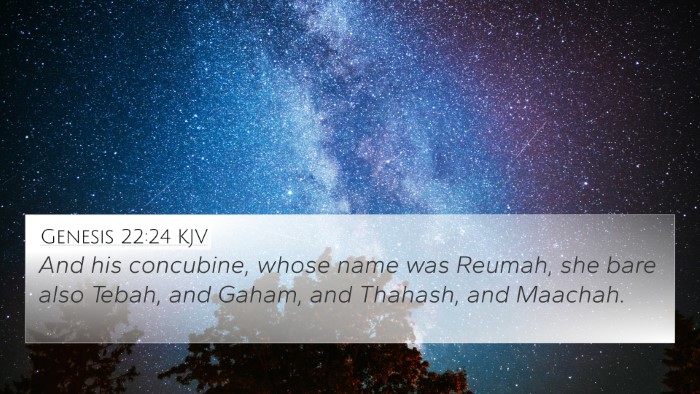 Genesis 22:24 (KJV) »
Genesis 22:24 (KJV) »
And his concubine, whose name was Reumah, she bare also Tebah, and Gaham, and Thahash, and Maachah.
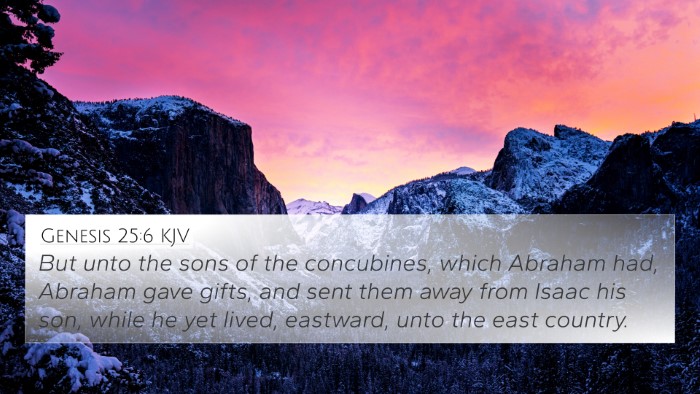 Genesis 25:6 (KJV) »
Genesis 25:6 (KJV) »
But unto the sons of the concubines, which Abraham had, Abraham gave gifts, and sent them away from Isaac his son, while he yet lived, eastward, unto the east country.
